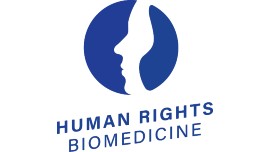As part of its significant initiative to promote the human rights and ethical standards in healthcare, the Council of Europe, in close collaboration with the Yerevan State Medical University, conducted a comprehensive training on the key human rights principles enshrined in the Council of Europe Convention on Human Rights and Biomedicine (Oviedo Convention) for 35 physicians clinical specialists from university clinics. The programme was designed to equip healthcare professionals with the skills and knowledge necessary to manage complex human rights and ethical challenges in clinical practice.
Meri Katvalyan, Senior Project Officer of the Project “Protection of Human Rights in Biomedicine” and Mary Ter- Stepanyan, the Head of the National Scientific Research Centre of Health Programs of YSMU made the opening remarks emphasizing the importance of human rights and ethical guidelines in clinical practice.
The participants had an opportunity to learn from the expertise of international and national consultants who covered a wide range of topics, such as national and European standards on right to health protection and access to healthcare services, the reproductive health rights, human rights-based approaches to healthcare, issues of informed consent, medical secret and confidentiality, as well as human rights challenges in emergency situations.
As a result, medical practitioners from university clinics upgraded their knowledge and skills that would help them to further promote and practice the standards outlined in the Oviedo Convention as part of their profession.
Additionally, participants earned 10 continuous professional development credits and expanded their professional networks, enhancing collaboration and expertise in the field.
The capacity-building training was organised by the Council of Europe Project on “Protection of Human Rights in Biomedicine II” implemented within the Council of Europe Action Plan for Armenia 2023-2026.
Background note: The Council of Europe Convention on Human Rights and Biomedicine (known as the “Oviedo Convention“) is the first and the only international legally binding instrument addressing human rights issues in the biomedical field. The Convention provides a framework for the protection of human rights and human dignity by establishing fundamental principles applicable to daily medical practice as well as clinical research, transplantation, and genomics.











